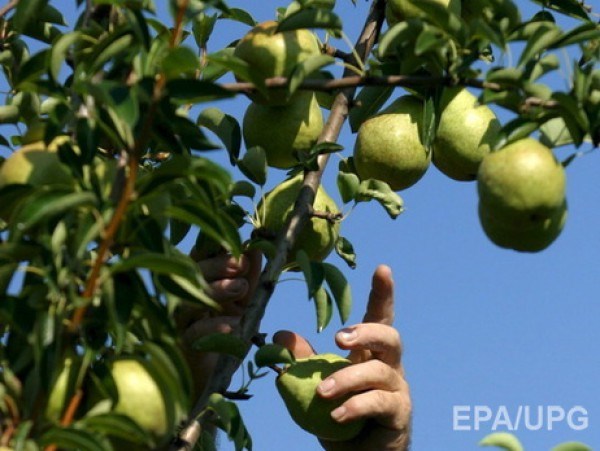40 tons of Belgian pears destroyed at Russian border
Russian Federal Security Bureau (FSB) agents and Roskomnadzor’s employees found two batches of pears at the Troitsk checkpoint in the Chelyabinsk region. The shipment of pears falls under the Presidential Decree issuing retaliatory sanctions, the Rosselkhoznadzor press service reported.
Fresh pears from Belgium were imported to Russia by two cars from Kazakhstan. Kazakh certificates, indicating Serbia as the country of origin, were attached to them. The total weight of the two batches was 40 tons.
“Upon opening the vehicle’s compartment, employees found production labels on the visible part of the boxes. These labels indicated that the pears were from Serbia. During further inspection of the cargo, it was found that the boxes also had traces of torn original labels which indicated that Belgium (EU country) was the country of origin,” Rosselkhoznadzor stated.
Therefore, the cargo was seized and crushed by a tractor, the press service stated. In the spring of 2014, western countries, including the USA, the EU and Canada imposed economic sanctions against Russia after the annexation of Crimea by the Russian Federation and the beginning of hostilities in Donbas. On the 29th of July, the European Council reported that six European countries: Montenegro, Albania, Iceland, Liechtenstein, Norway and Ukraine joined the extension of anti-Russian sanctions.
In response to this, in August last year, Russia placed a ban on the import of products from countries supporting the sanctions. On the 25th of July, Russia extended the ban until 5 August 2016. Initially, meat, fish, vegetables, fruits, milk and nuts from the EU, USA, Canada, Norway and Australia were subjected to Russian sanctions. Later, restrictive measures were imposed against Albania, Montenegro, Iceland and Liechtenstein.
Apples, which were traditionally supplied by Poland, are among the banned products. In the summer, Russian President, Vladimir Putin, approved a proposal by the Minister of Agriculture, Alexander Tkachyov, to destroy any sanctioned products that were brought into Russia. According to Rosselkhoznadzor, between July and September, more than 700 tons of sanctioned products have already been destroyed in Russia.
